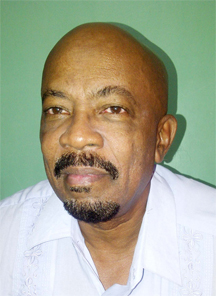Recent evaluations have found Environmental Health Officers (EHOs) to be incompetent in several areas of service and the Ministry of Local Government and Regional Development has urged them to shape up.
This was the charge given last Wednesday at a workshop that comprised an audience of EHOs, environmental health assistants (EHAs), senior environmental health officers (SEHOs) stationed at local government organs including regional and neighbourhood democratic councils and municipalities.

The workshop was held under the theme ‘Enhancing the practice of Environmental Public Health in the Local Government System.’
Minister in the Ministry of Local Government and Regional Development Norman Whittaker said the theme takes note of the need for improvement, following evaluations done at a recent retreat which found that the services offered were not adequate and action needed to be taken to ensure timely and quality delivery of service.
“The returns were not satisfying enough … not only satisfying to us who have the oversight, but to the people who we are supposed to serve,” he said, according to a Government Information Agency (GINA) report.
He also reiterated that the duties of an EHO are to educate, inform and create awareness among the communities under his/her purview about the consequences of actions like improper garbage disposal, roadside vending and nuisances. The minister then encouraged participants to familiarise themselves with the Local Government Act and the Public Health Act. The ministry aims to develop a competent workforce and this cannot be done unless personnel do their jobs, he said.
In his speech, Permanent Secretary Collin Croal said the session aimed at enhancing the capabilities of the ministry’s staff. As such, training will be continuous and the ministry will be monitoring its officers’ performance. Similar workshops will also be held at the regional level, GINA said.
“We are having this workshop because you are not performing to the best of your ability… I don’t think some of you understand your role within the region as well as the NDCs,” he said. According to Croal, a number of issues were brought to bear at the level of the Public Accounts Committee which suggested that local government agencies were not functioning. He said too many complaints had been lodged about a lax response to the approval of plans, bribery, officers failure to attend statutory meetings and to monitor activities assigned to them.
While the Ministry of Health is responsible for the policy aspect, the local government ministry is tasked with ensuring that EHOs conduct their duties, GINA said.
Chief Medical Officer, Dr Shamdeo Persaud, in his presentation, highlighted the legal components attached to the office of the EHO. The last Act tabled in the National Assembly – the Allied Health Professionals Act – focused on public health practitioners. The Act stipulates that all public health officers must be registered and licensed annually by the medical council to execute their duties.
In addition to that environmental health officers, health assistants and senior health officers are mandated to be licensed and attend at least four medical education programmes. Credits for these programmes must be attained before they can be licensed to practice in Guyana. Dr Persaud noted that this aspect aids in advancing an officer’s education and capabilities.
He also said that public health monitoring goes back to Guyana’s colonial past when the Public Health Ordinance was created in 1934. Since then many countries have evolved, nevertheless the old ordinance is still in force.




